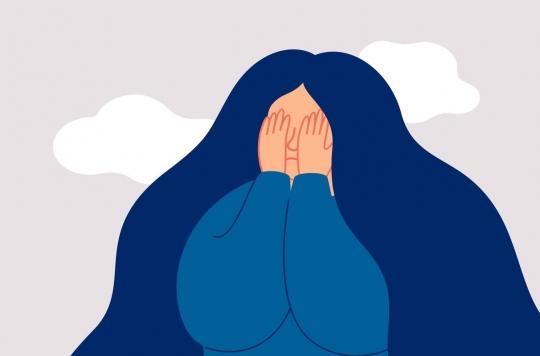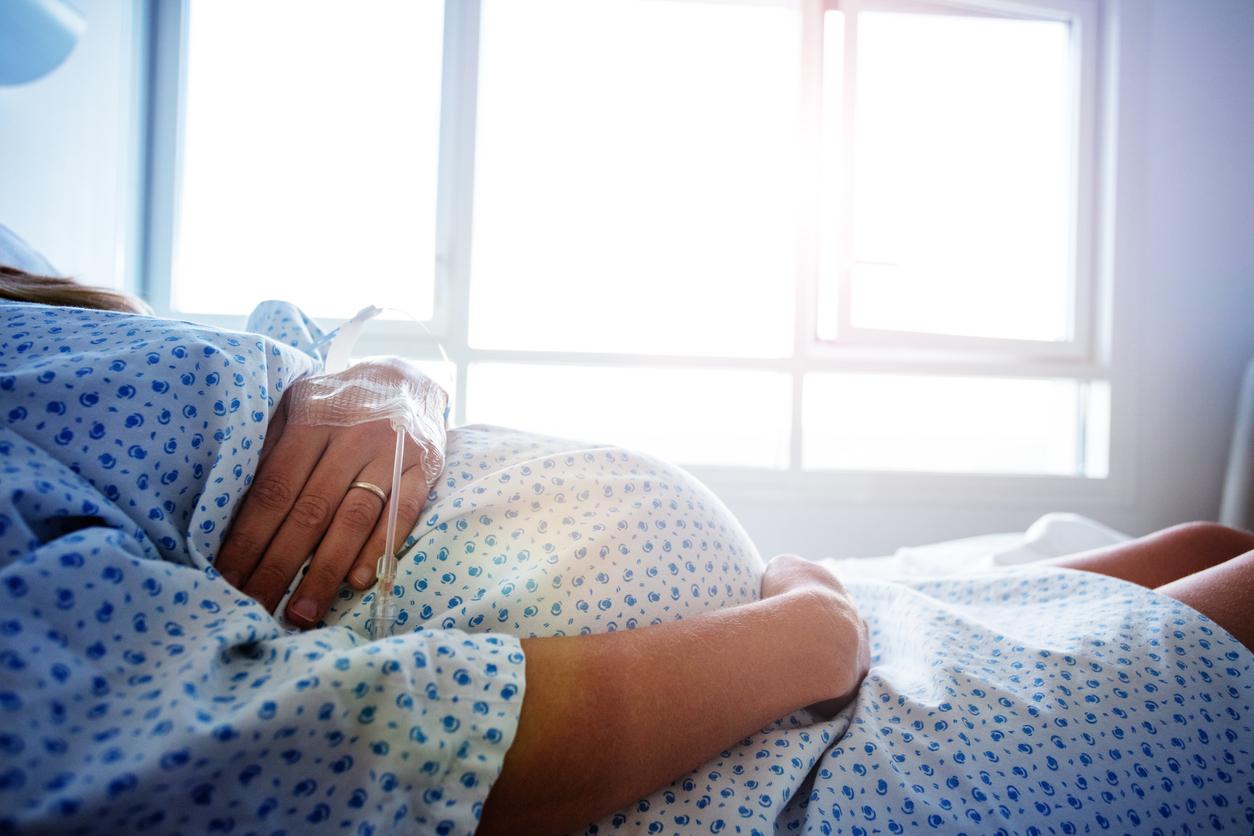About 23 million miscarriages occur every year, or 44 every minute. However, as The Lancet deplores in a new report, this event is still taboo, and poorly accompanied. At 37, Laëtitia Rimpault tells us how she experienced her thirteen miscarriages, before finally giving birth to her little girl thanks to PMA.

- 23 million miscarriages occur worldwide every year, or around 15% of all pregnancies, according to a new report published in The Lancet.
- 10% of women will have two miscarriages in their lifetime, and 7% will experience three or more.
– Why doctor – You had 13 miscarriages. What were they due to?
Laetitia Rimpault – The causes of my successive miscarriages were identified very, very late. They were due to early ovarian failure, with chromosomal problems on the oocytes. I also suffered from immune underactivity in the endometrium, as well as a small blood mutation.
– How has this impacted your daily life?
After eleven miscarriages, I separated from my spouse at the time. He already had a little girl, and told me that I had to get used to the idea of never being a mother, which was unthinkable for me. I started to resent him, and we finally broke up.
I then got back into a relationship, with a man ready to follow me to the end. Our romantic relationship was less affected by my fertility problems, because with him, I only had two miscarriages before getting pregnant.
– How did you experience your miscarriages?
My first miscarriage was super shocking, I took a real blow: I knew we could lose a baby, but I didn’t expect it at all. As the hospital considers it not serious to have a miscarriage, I was sent home without any psychological support.
Subsequently, the more I had miscarriages, the more my hope of being a mother diminished. It was hard, just like the uncertainty that gnawed at me. I kept wondering if it would ever work… But in my misfortune, I was still “lucky”, because I only had early miscarriages, at a maximum of a month and a half of pregnancy.
– When did you decide to turn to PMA?
My gynecologist directed me very quickly to PMA, because I had three miscarriages between March and August 2014.
– How did you experience this course of PMA?
It was difficult to live with, and very heavy to bear. In my first care structure, we were not supported at all with my spouse. We felt like customers, not patients. We were just one number among many. When I changed PMA, there was a little more humanity in the way of doing things and the words used, so it was better.
But overall, couples who follow PMA courses are left to their own devices, with doctors who are far too cashy, who trivialize an extremely harsh experience.
– Have you ever been discouraged?
No. As long as the doctors did not give me a definitive stop, I could not make up my mind. But my body and my mind took many blows.
– How did you finally manage to conceive?
After five years, I finally resorted to egg donation, and it worked.
– You went to a Czech clinic. What do you think of egg donation in France?
Things are starting to move, but in France there aren’t enough egg donors. If I hadn’t turned abroad, I would have had to wait for a donation for two or three years, when I had already been fighting for 5 years to have a child.
In the Czech Republic or Spain, oocyte donors are younger and waiting times are much shorter, two to three months maximum. They also receive a small financial compensation, which certainly helps a lot to develop oocyte donation. This is, for me, a model to follow, and France is behind on this issue.
– You mention the medical profession’s lack of empathy for your situation. Do you have examples?
During my eighth miscarriage, I had a lot of pain, with contractions that came on all the time. At the hospital, they put me in a corridor, in plain sight, without offering me any painkillers. While I was crying all the tears in my body, the doctor who saw me told me, coldly: “It’s almost over. Go home and take a doliprane”. Again, no painkillers were prescribed to me.
Another thing: throughout my journey, doctors referred to my lost embryos as “residues of miscarriage”. It’s a barbaric term, super difficult to hear.
– Are you still thinking about those 13 miscarriages?
It gets better with time, especially since my daughter arrived. I tell myself that it was her who was destined for me. But all these miscarriages marked me, and I still think about it from time to time.
– For you, are miscarriages and infertility still a taboo in France?
Yes, even if things are changing a little bit. At the beginning of my career, no one spoke to me about it. Then, when I started confiding in social media, many women told me similar stories. Ditto for my colleagues and my family.
Many women still do not dare to talk about their miscarriage today. Some because they are ashamed, others because they don’t want to rub salt in the wound…
– Do you want to add something for women who are struggling to have a child?
When they become pregnant, they need to control their potential lack of progesterone, and they insist with doctors to give additional injections if necessary, even if they are told that it is not serious. I almost lost my daughter because of this. It’s a simple thing to control, but often, in France, we don’t do it.
To learn more, read the book “My stars and my future – Diary of recurrent miscarriages”, by Laëtitia Rimpault (St Honoré editions).
.













-1739366311.jpg)


